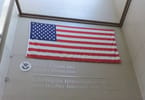Private hospitals may soon have to pay a levy to cover risks associated with New Zealand’s growing “medical tourism” industry.
ACC Minister Nick Smith told the Sunday Star-Times the issue was one of fairness. It was not right, he said, that New Zealand taxpayers were paying ACC levies that provided insurance against medical misadventure for wealthy Americans who choose to have elective surgery in New Zealand.
The move comes as the government addresses a $4.8 billion ACC blowout. Wage earners will lose hundreds of dollars a year from their pay packets as the ACC levy rises, and hikes in car and motorcycle registrations are introduced to counter the rising cost of providing ACC.
Other plans include reducing entitlements for casual and part-time workers, slashing physiotherapy payouts and cancelling entitlements for criminals.
About 1000 foreign visitors a year choose to have medical treatments in New Zealand because it is cheaper than their own country. This is especially the case for US residents, where a hip replacement operation costs about $US50,000, compared with $US15,000 in New Zealand. Heart bypass surgery costs $US125,000 in the US against $US25,000 in New Zealand.
Smith said he had been advised that the number of overseas patients choosing to have surgery in New Zealand was expected to reach 20,000 by 2020, when the industry would be worth $1 billion a year.
“There is a real concern around medical tourism and the risks for New Zealand around the ACC scheme. It’s not right that levy payers are subsidising [misadventure insurance] for private hospital operations in New Zealand.
“I have asked ACC to look at the design of a specific levy on private hospitals so that the costs of the risks from medical treatment in New Zealand is met by the industry and not other New Zealanders.
“If New Zealand can genuinely earn foreign exchange from efficient health services, that is a good thing, but it should not be being subsidised by New Zealand levy payers.
“The problem here is about fairness and also about the longer-term risks if this industry grows, as some are speculating.”
Smith did not, however, believe it was necessary to also levy tourists who visit New Zealand and who are injured in adventure sports such as mountain climbing or in vehicle accidents.
Most injuries of overseas visitors are in vehicle accidents, but visitors contributed to their medical costs through the ACC petrol and car registration levies. They also were not paid income compensation.
“If we denied visitors ACC you would need a common law right, to return their right to sue. I am very reluctant to go down that path because then every New Zealander is going to be worried that if they have a car accident and it involves an international tourist then they are opening themselves up to the risk of legal action.”
But private hospitals say the minister’s argument is inconsistent and unfairly singles out one group of visitors. The NZ Private Surgical Hospitals Association, representing the country’s 37 private hospitals, insist any new levy should be imposed only on those hospitals in the business of medical tourism.
The association’s president Terry Moore said ACC should cover all overseas visitors or none. He would be very surprised if as many as 1000 overseas patients were coming to New Zealand every year for surgery, but there was no question that some hospitals were wanting to get into the market.
“It’s a good thing for the economy. But no one knows just how big that market can be because it’s no small thing to fly all the way from the US to have that treatment.
“If ACC chose to apply a levy I think it’s quite important that the levy is only levied on hospitals that actually do overseas patients.”
Last week the Act Party agreed to support the government’s reforms in return for opening up the Work Account to competition. The Work Account covers all work-related injuries and is funded by levies paid by companies and self-employed businesses.
Prime Minister John Key has left the door open to further competition. The government will wait for the findings of a stocktake of ACC – headed by a former Labour finance minister, David Caygill – before deciding to what extent it will expose ACC to competition. Caygill will report to the government next June.
APA sing kudu dijupuk saka ARTIKEL INI:
- “I have asked ACC to look at the design of a specific levy on private hospitals so that the costs of the risks from medical treatment in New Zealand is met by the industry and not other New Zealanders.
- I am very reluctant to go down that path because then every New Zealander is going to be worried that if they have a car accident and it involves an international tourist then they are opening themselves up to the risk of legal action.
- Wage earners will lose hundreds of dollars a year from their pay packets as the ACC levy rises, and hikes in car and motorcycle registrations are introduced to counter the rising cost of providing ACC.






















